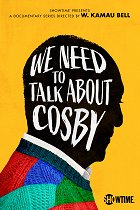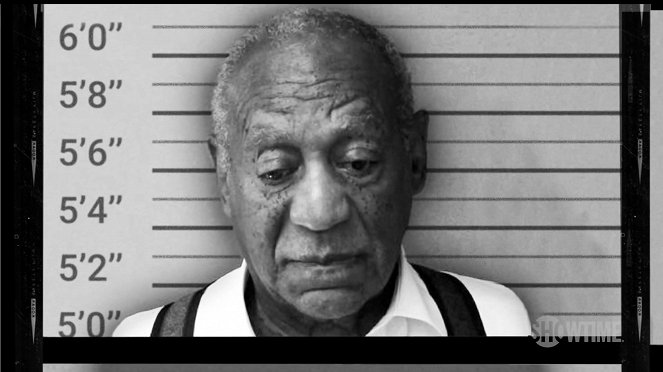Directed by:
W. Kamau BellCinematography:
Alexander D. PaulComposer:
Vernon ReidCast:
Bill Cosby (a.f.), Nonie L. Robinson, Doug E. Doug, Chris Spencer, Michael Jai White, Wayne Federman, Jelani CobbVOD (3)
Episodes(4)
Videos (1)
Reviews (1)
Numerous documentary films and series about perpetrators of sexual violence have been made in recent years, but I have yet to see anything as balanced as We Need to Talk About Cosby (many such documentaries, like Allen vs. Farrow, are comically one-sided). In four hour-long, briskly edited and very informative episodes, W. Kamau Bell recounts, chronologically and in a broader socio-cultural context, the rise of the legendary actor, philanthropist and pop-culture icon who had a tremendous impact on the (positive) representation of African-Americans. This narrative is interspersed with the testimonies of women who describe in detail how Bill Cosby drugged and raped them (or attempted to do so). Moreso than other documentary filmmakers, Bell is aware that the two stories are closely interconnected; one would not be complete without the other. The survivors trusted Cosby, respected him for what he had done for the black community (which was one of the reasons that his crimes were long swept under the rug and that for many it was unacceptable to criticise Cosby at all). They knew him form television as a moral authority and a likable father figure. After the incident, many of them blamed not Cosby but themselves for their naïveté (essentially self-victim blaming). University professors, comedians he had influenced, a sex therapist and a pharmacologist comment primarily on issues related to their respective professions but, because they are largely African-American, they are also given space to share how Cosby had influenced their lives and their thinking about black identity. They do not question his mastery of comedy, the enduring humour of his sketches and stand-up routines, his positive influence on the representation of African-Americans in film and on television crews (when shooting I Spy, he was one of the first to have a stunt double of the same skin colour) and the popular perception of the black family (which, of course, in the 1980s faced different problems than the well-to-do family from The Cosby Show, as was reflected in the series itself). At the same time, they do not lose sight of the fact that Cosby also used his resulting power and money to perpetrate sexual assaults, bullying and intimidation. Bill Cosby is an exceptionally gifted comedian who has helped many people and ruined the lives of others. Both statements are true, one truth should not overshadow the other, and We Need to Talk About Cosby is unique in asking us to accept this ambivalence.
()

